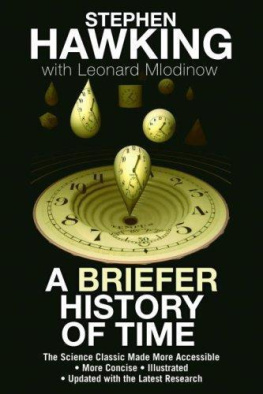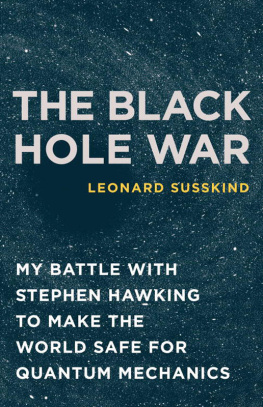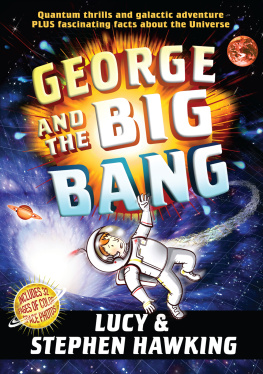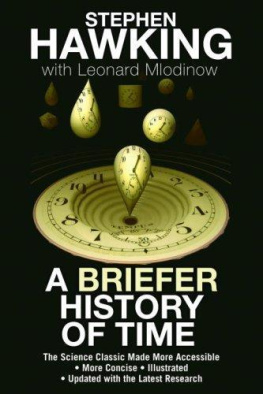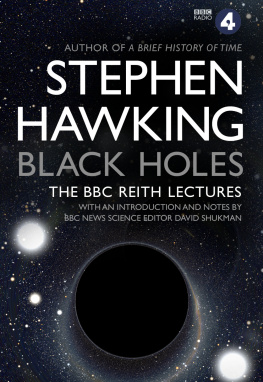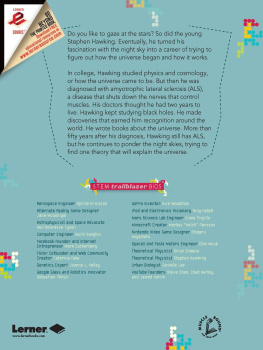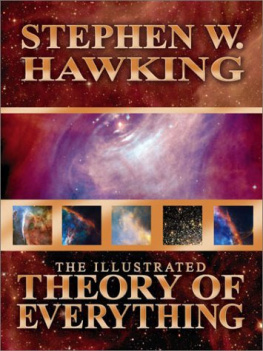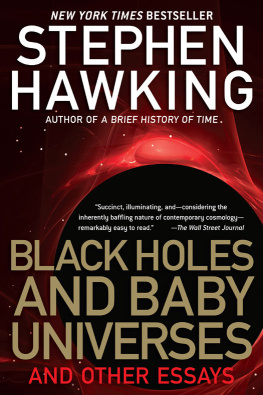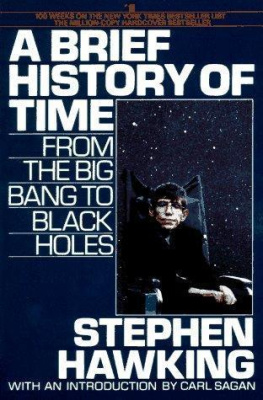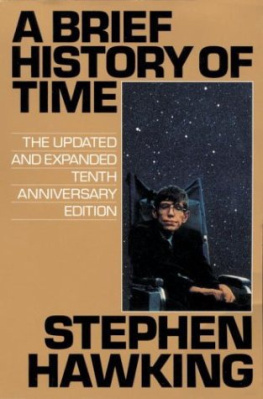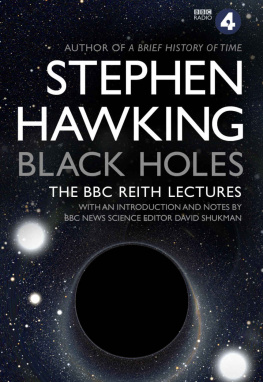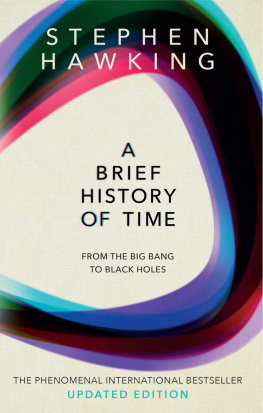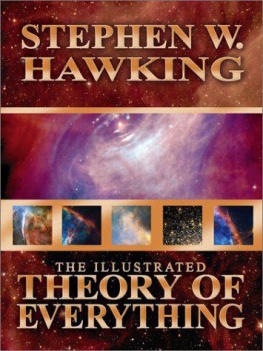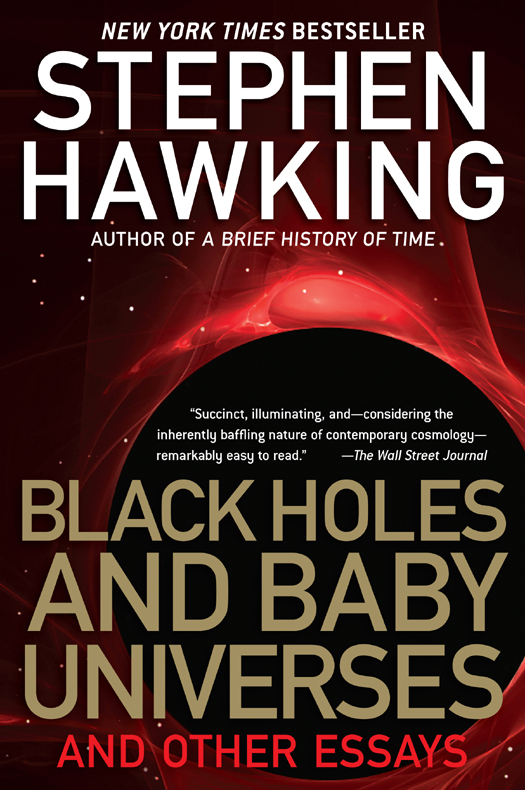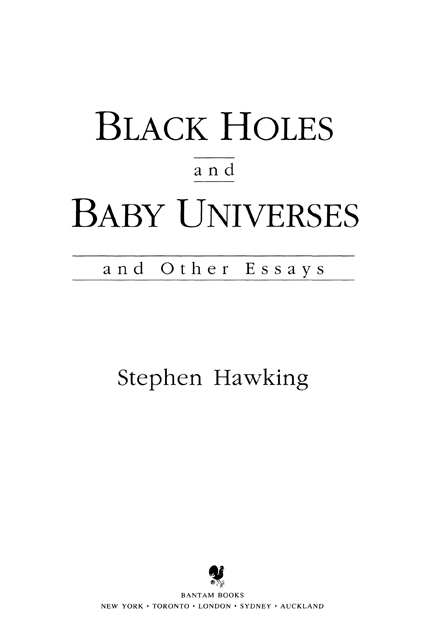BLACK HOLES AND BABY UNIVERSES
A Bantam Book
PUBLISHING HISTORY
Bantam hardcover edition / October 1993
Bantam trade paperback edition / October 1994
Is the End in Sight for Theoretical Physics?, an Inaugural Lecture given in the University of Cambridge by Stephen Hawking Copyright 1980, Cambridge University Press Reprinted by permission
The interview Desert Island Discs is published through the courtesy of the BBC and with the approval of Mrs Diana Plomley and Miss Sue Lawley
All rights reserve
Copyright 1993 by Stephen Hawking
Library of Congress Catalog Card Number 93-8269
No part of this book may be reproduced or transmitted in any form or by any means, electronic or mechanical, including photocopying, recording, or by any information storage and retrieval system, without permission in writing from the publisher For information address Bantam Books
eISBN: 978-0-307-79045-3
Bantam Books are published by Bantam Books, a division of Bantam Doubleday Dell Publishing Group, Inc Its trademark, consisting of the words Bantam Books and the portrayal of a rooster, is Registered in US Patent and Trademark Office and in other countries Marca Registrada Bantam Books, 1540 Broadway, New York, New York 10036
Cover design: Pere 360
Cover illustration: Visual7/iStockphoto
v3.1
Contents
P REFACE
T HIS VOLUME CONTAINS a collection of pieces that I wrote over the period 1976 to 1992. They range from autobiographical sketches through the philosophy of science to attempts to explain the excitement I feel about science and the universe. The volume concludes with the transcript of a Desert Island Discs program on which I appeared. This is a peculiarly British institution in which the guest is asked to imagine himself or herself cast away on a desert island and is invited to choose eight records with which to while away the time until rescued. Fortunately, I didnt have too long to wait before returning to civilization.
Because these pieces were written over a period of sixteen years, they reflect the state of my knowledge at the time, which I hope has increased over the years. I have therefore given the date and occasion for which each was composed. As each was meant to be self-contained, there is inevitably a certain amount of repetition. I have tried to reduce it, but some remains.
A number of the pieces in this volume were designed to be spoken. My voice used to be so slurred that I had to give lectures and seminars through another person, usually one of my research students who could understand me or who read a text I had written. However, in 1985 I had an operation that removed my powers of speech altogether. For a time I was without any means of communication. Eventually I was equipped with a computer system and a remarkably good speech synthesizer. To my surprise, I found I could be a successful public speaker, addressing large audiences. I enjoy explaining science and answering questions. Im sure I have a lot to learn about how to do it better, but I hope Im improving. You can judge for yourselves whether I am by reading these pages.
I do not agree with the view that the universe is a mystery, something that one can have intuition about but never fully analyze or comprehend. I feel that this view does not do justice to the scientific revolution that was started almost four hundred years ago by Galileo and carried on by Newton. They showed that at least some areas of the universe do not behave in an arbitrary manner but are governed by precise mathematical laws. Over the years since then, we have extended the work of Galileo and Newton to almost every area of the universe. We now have mathematical laws that govern everything we normally experience. It is a measure of our success that we now have to spend billions of dollars to build giant machines to accelerate particles to such high energy that we dont yet know what will happen when they collide. These very high particle energies dont occur in normal situations on earth, so it might seem academic and unnecessary to spend large sums on studying them. But they would have occurred in the early universe, so we must find out what happens at these energies if we are to understand how we and the universe began.
There is still a great deal that we dont know or understand about the universe. But the remarkable progress we have made, particularly in the last hundred years, should encourage us to believe that a complete understanding may not be beyond our powers. We may not be forever doomed to grope in the dark. We may break through to a complete theory of the universe. In that case, we would indeed be Masters of the Universe.
The scientific articles in this volume were written in the belief that the universe is governed by an order that we can perceive partially now and that we may understand fully in the not-too-distant future. It may be that this hope is just a mirage; there may be no ultimate theory, and even if there is, we may not find it. But it is surely better to strive for a complete understanding than to despair of the human mind.
S TEPHEN H AWKING
31st March 1993
One
C HILDHOOD
I WAS BORN ON January 8, 1942, exactly three hundred years after the death of Galileo. However, I estimate that about two hundred thousand other babies were also born that day. I dont know whether any of them were later interested in astronomy. I was born in Oxford, even though my parents were living in London. This was because Oxford was a good place to be born during World War II: The Germans had an agreement that they would not bomb Oxford and Cambridge, in return for the British not bombing Heidelberg and Gttingen. It is a pity that this civilized sort of arrangement couldnt have been extended to more cities.
My father came from Yorkshire. His grandfather my great-grandfather, had been a wealthy farmer. He had bought too many farms and had gone bankrupt in the agricultural depression at the beginning of this century. This left my fathers parents badly off, but they managed to send him to Oxford, where he studied medicine. He then went into research in tropical medicine. He went out to East Africa in 1937. When the war began, he made an overland journey across Africa to get a ship back to England, where he volunteered for military service. He was told, however, that he was more valuable in medical research.
My mother was born in Glasgow, Scotland, the second child of seven of a family doctor. The family moved south to Devon when she was twelve. Like my fathers family, hers was not well off. Nevertheless, they managed to send my mother to Oxford. After Oxford, she had various jobs, including that of inspector of taxes, which she did not like. She gave that up to become a secretary. That was how she met my father in the early years of the war.
We lived in Highgate, north London. My sister Mary was born eighteen months after me. Im told I did not welcome her arrival. All through our childhood there was a certain tension between us, fed by the narrow difference in our ages. In our adult life, however, this tension has disappeared, as we have gone different ways. She became a doctor, which pleased my father. My younger sister, Philippa, was born when I was nearly five and was able to understand what was happening. I can remember looking forward to her arrival so that there would be three of us to play games. She was a very intense and perceptive child. I always respected her judgment and opinions. My brother Edward came much later, when I was fourteen, so he hardly entered my childhood at all. He was very different from the other three children, being completely nonacademic and nonintellectual. It was probably good for us. He was a rather difficult child, but one couldnt help liking him.


